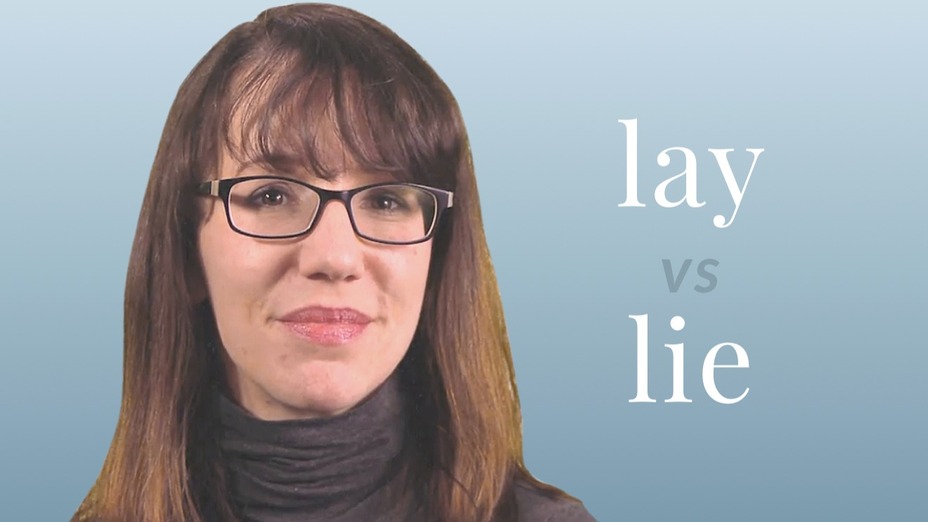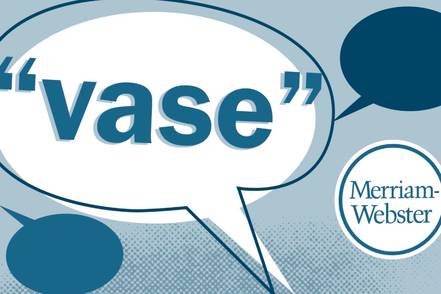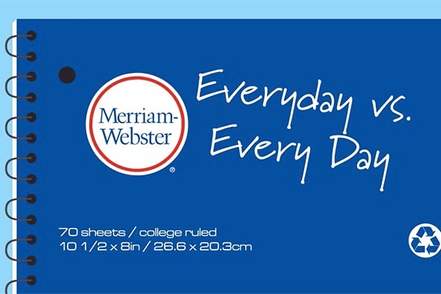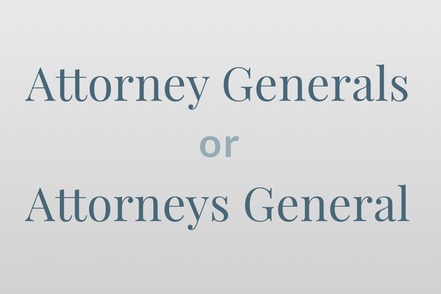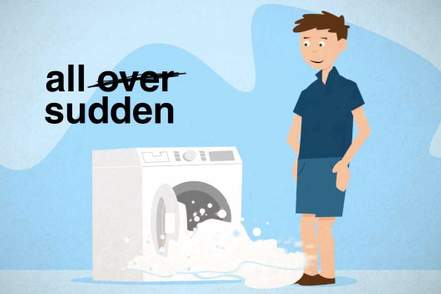TRANSCRIPT
Welcome to Ask the Editor. I'm Emily Brewster, an associate editor at Merriam-Webster.
Sometimes we tell you that certain grammar rules are little more than the Latin-inspired whims of long dead grammarians. But not so with the verbs lay and lie. This pair is a doozy that's been tripping up English speakers for 700 years.
Lay's most common meaning is, to place something or someone down in a flat position. Lie's corresponding meaning is, to be in a flat position on a surface.
Lay is transitive. It requires that the verb have an object. There has to be a thing or a person being placed.
- Lay it down.
Lie, on the other hand, is intransitive. It's for something or someone moving on their own. Or something or someone that's already in position.
- You can lie down there.
- You can lie there all day.
That's tricky enough, but it gets worse when we start using the words beyond the now.
Here's lay in context in tenses that show its principal forms.
- I was told to lay the book down.
- I laid it down as I have laid other books down.
- I am laying more books down now.
And here's lie.
- I was told to lie down.
- I lay down.
- I have lain here since.
- I'm still lying here.
Did you catch that?
For lay, we have lay, laid, have laid, laying.
For lie, we have lie, lay, have lain, lying.
And then there's the unrelated verb meaning to tell an untruth.
That lie goes, lie, lied, have lied, lying.
What fascinates me about all this is that the language has continued to carry a torch for the distinction for 700 years. Enough writers and editors get these right generation after generation, that there continues to be a right and a wrong. It's not because dead grammarians said so, but because people like you get it right, often enough anyway, that it's still how the land lays.
I mean lies.
For more Ask the Editor videos, click on the videos tab at merriam-webster.com.
